-
(单词翻译:双击或拖选)
Part 1 At the English Club 在英语社团
Dialogue Script 1 对话原文 1
Linda: As the English speech club president, I'd like to welcome a foreign friend, Rob, to our ba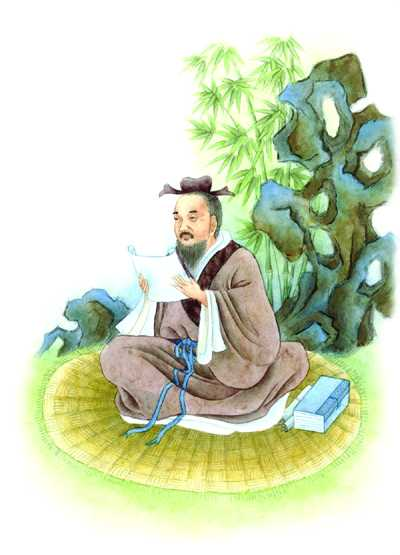 rbecue event! Let's get you a drink. Is Budweiser OK?
rbecue event! Let's get you a drink. Is Budweiser OK?
Rob: I was hoping to try some mijiu.
Linda: Oh, We don't drink that stuff here.
Rob: Well, too bad. I guess it'll have to be the "King of Beers" for me then.
Linda: And what kind of meat would you like to have?
Rob: Didn't I tell you I'm a vegetarian1?
讲解:
1. 在中秋节这天,Rob受到邀请来参加学校英语俱乐部的烧烤晚会。俱乐部的负责人Linda向大家介绍了Rob,并且给他拿了一杯喝的,Budweiser“百威啤酒”,是美国的一个品牌,现在在中国也很常见。
2. Rob还以为来这里有米酒喝,没想到这里没有人喝那种东西。Rob挺失望的,他说,I was hoping to try some mijiu.这里用的是过去进行时,表示“过去一直在做某事”。看来只能喝Budweiser了,King of Beers,估计是百威啤酒的广告语。
3. Linda又问Rob想吃什么肉,因为他们这里举行的是烧烤晚会。Rob说他是一个素食主义者,不吃肉。vegetarian 表示“吃素的人,素食主义者”。
Dialogue Script 2 对话原文 2
Susan: Hi, I'm the club's treasurer2, Susan.
Rob: Nice to meet you, Susan. Does the club have a lot of money to take care of?
Susan: Not too much, but it's a good job for a business student like me.
Rob: It seems like most English enthusiasts3 are into business.
Susan: Can I tell you something, Rob? You look just like my ex-boyfriend.
Rob: Uhh, really? You don't say.
Susan: Yeah, just like him. Are you from Nebraska, too?
Rob: No, California. How long were you together?
Susan: He went back after four months, and I was hear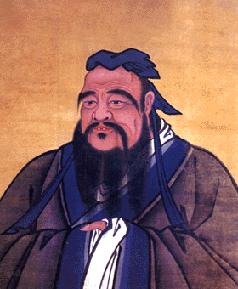 tbroken. Is there any beer left in that can?
tbroken. Is there any beer left in that can?
Rob: Sure. Take it. So, do you stay in touch with him?
Susan: Kind of. Oh my God! You have the same blue eyes.(chugs the can)
Rob: (to himself) Maybe I should start wearing brown contacts.
Susan: You seem like a really special person.
Rob: Umm, yeah, you, too. Sorry , I need to go the bathroom now. (leaves quickly)
讲解:
1. 对话中,英语社团的会计Susan走过来跟Rob搭话,treasurer,是“会计”的意思。Rob很奇怪,难道这样一个学校的社团也有很多经费需要一个专门的会计来管理吗?
2. Susan回答说,虽然没有很多钱需要管理,但是对于一个商学院的学生来说,这是一个不错的职位。Rob觉得好像大部分热衷英语的人都从商了。be into sth 表示“从事某种职业”。
3. Susan突然说,Rob长得很像她以前的男朋友,这让Rob不知所措,他说,Uhh, really? You don't say. 真的吗?不会吧。You don't say.这句话看起来像是个轻描淡写的否定句,其实是个不折不扣的疑问句,专门用来表达对对方说的话表示“怀疑”。比如说,---I was raised by a pack of wolves. ---You don't say. ---我是被一群狼养大的。---不是真的吧。还有一组对话,---My mom is the smartest woman in the world. ---You don't say.---我妈妈是世界上最聪明的女人。---是嘛。
4. Susan很肯定Rob很像她以前的男朋友,还问他是不是从Nebraska美国内布拉斯加州来的。但是Rob是从加利福尼亚来的。Susan的男朋友在他们在一起四个月后就回去了,这让Susan伤透了心。还发现Rob有和她前男友一样的蓝眼睛,触景生情,要过了Rob的啤酒一饮而尽。
5. Rob也不知道该怎么办,自言自语说,也许他今后应该戴一副棕色的隐形眼镜。contacts就是指“隐形眼镜”。他不得不借口说要去上厕所,赶紧逃开,要不然真的不知道会有什么样的状况。看来到现在为止Rob在这场烤肉晚会上不是特别顺。
Part 2 Talking About Confucious 谈论孔子
Dialogue Script 1 对话原文 1
Rob: Do you study Chinese history? 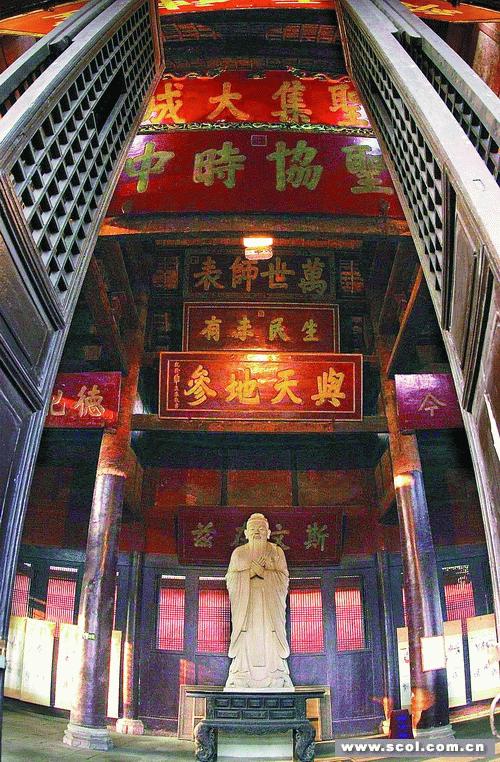
Tina: Yep. There aren't many of us left who are still interested in it.
Rob: Well, maybe you can tell me about Teacher's Day.
Tina: Well, yes, but today is the Mid-Autumn Festival.
Rob: Is that more important? Shouldn't we be celebrating Confucius?
Tina: Everyone's forgot about him since his birthday's no longer a holiday.
Rob: But isn't tradition still important?
Tina: You sound like my father. This sausage is delicious. Too bad you won't eat it.
讲解:
1. 对话中,Rob和Tina聊了起来。Tina是学习中国历史的,现在已经没有多少人还对历史感兴趣了。不过Rob对中国历史和文化还是非常感兴趣的。他问Tina可不可以告诉他一些跟教师节有关的事情。
2. Tina说当然可以,可是今天是中秋节,为什么突然想起教师节了呢?Rob问中秋节要比教师节重要吗?难道不应该庆祝孔子的生日吗?因为现在孔子的生日9月28日不再是一个节日了,所以人们几乎遗忘了这个日子。
3. 但是Rob觉得奇怪,传统不是仍然很重要吗?Tina笑Rob听起来像他爸爸,老古董了。
4. 不管怎么说,Rob终于碰到了一个可以一起讨论中国历史和文化的人了,这让他很高兴。
Dialogue Script 2 对话原文 2
Rob: So, I've been shocked by a lot of things since I came here.
Tina: Like what? The holes in the roads?
Rob: Of course. But I guess I also had different cultural expectations.
Tina: Did you expect us all to be pious4 Buddhists5?
Rob: Not exactly. But I still don't really understand the religion here.
Tina: You must know that in China, Taoism, Buddhism6, and Confucianism are all blended.
Rob: They all look indistinguishable now. I know the history, but I can't see it here.
Tina: You've read Laozi and Zhuangzi?
Rob: Of course. And I've done some Zen meditation7.
Tina: You probably know more about Eastern religion than I do, then.
Rob: Well, I never had an altar in my house when I was growing up. 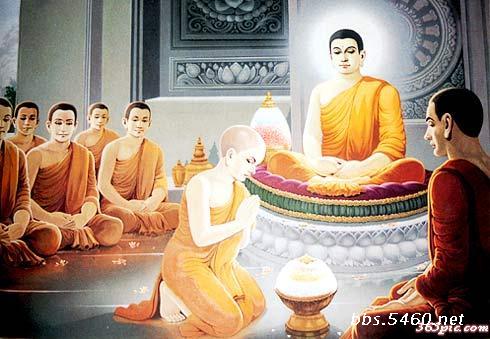
Tina: I bet you didn't have a barbecue grill8 like this either. Are you Christian9?
Rob: Actually, my family is all atheist10.
Tina: Does that make you all the more curious about religion?
Rob: You could say that. But I'm more interested in Taoist philosophy than religion.
讲解:
1. 对话中Rob和Tina还在继续聊天。Rob诉苦说,自从来到这里,很多事情都让他吃惊。Tina不明白,是什么事情呢?难道是公路上的坑洞吗?
2. Rob承认包括这个方面,当然还因为他对文化有不同的期待。Tina开玩笑说,难道Rob还期望他们是虔诚的佛教徒吗?pious表示“虔诚的”,Buddhists就是“佛教徒”。
3. Rob当然不会这么认为,只是他还是不大懂中国的宗教。Tina提醒Rob,在中国道教Taoism,佛教Buddhism和儒教Confucianism都融合在一起了。Rob也知道现在这三者看起来已经分不清楚了,但是现在已经看不到历史的痕迹了。
4. Tina很惊讶,Rob竟然已经读过了庄子和老子了。今天既然说到了中国古代这些著名的思想流派,那么我们就花点时间来详细说说。道教,Taoism,是我国的宗教之一,由东汉张道陵创立,到南北朝的时候盛行起来。
5. 道教创立的时候,入教者必须出5斗米,所以又叫“五斗米道”,道教徒尊称张道陵为天师,因而又叫“天师道”。道教奉老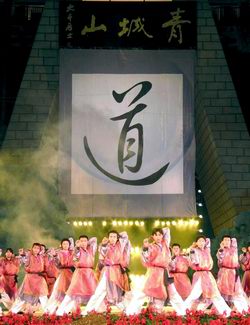 子为教祖,尊他为“太上老君”。儒家是先秦时期的一个思想流派,以孔子为代表,主张礼治,强调传统的伦常关系。
子为教祖,尊他为“太上老君”。儒家是先秦时期的一个思想流派,以孔子为代表,主张礼治,强调传统的伦常关系。
6. 现在我们来说两个跟道教和儒教相关的句子,这样你在向外国朋友介绍的时候,就有话说了。Taoism promotes the belief in many gods. 道教注重多重信仰。Confucianism uses incorruptible tenets to reward good and punish wickedness. 儒家思想用名声不朽的观念劝善惩恶。
7. 再来说说老子和庄子。老子主张无为而治,庄子主张“弃知”以达天下大治,由于两位哲学家的理念相似,所以常被相提并论。“老庄思想”因而成为耳熟能详的名词,如果遇到外国朋友想了解这两位影响中国文化至深的人物,你就可以告诉他,Laozi and Zhuangzi are both Taoists. 老子、庄子都是道家的代表人物。还有,The Way Laozi followed was one of Nature. 老子的“道”指“自然”。Zhuangzi believed that to conform to Nature is to return to one's original self and regain11 truth. 庄子主张“顺其自然,返璞归真”。
8. Rob不仅读过了老子和庄子,而且也做过默想,Zen meditation. Zen是指“禅宗”,meditation指“默念,默想”。Tina说这么说来,Rob说不定比她更了解东方的宗教信仰。
9. 不过Rob说,我从小到大家里都没有祭坛,就是说他们家都是无神论者,atheist就是指“无神论者”。难道这就是让Rob对宗教更加感兴趣的原因吗?也许是这样吧,不过Rob还是对古代哲学比较感兴趣。
Dialogue Script 3 对话原文 3
Tina: I'm sure you've seen the difference here. Even the words are different.
Rob: What do you mean?
Tina: One is called "daojiao", for religion, and the other is called "daojia", the philosophy.
Rob: How interesting. What about for Buddhism and Confucianism?
Tina: Confucianism isn't really a religion, even though there are temple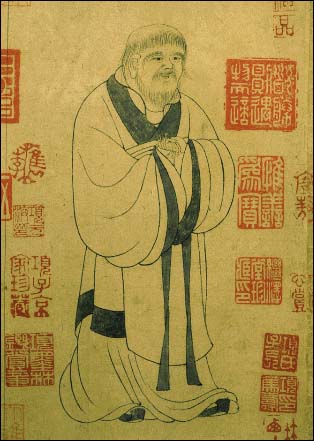 s.
s.
Rob: I guess all great people are put into temples over here. But there's a ceremony for him, right?
Tina: Even though he was a philosopher, he did always advocate the importance of ritual.
Rob: But here, it seems all ritual and no substance.
讲解:
1. Tina说宗教和哲学思想是有区别的,甚至连用的字都不同。Rob没有明白,Tina又继续解释说,一个是“道教”,指宗教信仰;另一个是“道家”,指“哲学”。
2. Rob觉得这挺有趣的。那佛教和儒教又有什么区别呢?Tina解释说,虽然也有寺庙,儒教其实不是一种religion宗教信仰。
3. Rob觉得大概这里人们会为所有的伟人建造庙宇纪念他们。但是也有为孔子举行的仪式吧。大家注意了,孔子跟老子,庄子不一样,它的表达方式是“Confucius”。
4. 虽然孔子是一位哲学家,但是他依然大力提倡仪式的重要性,ritual就是指“宗教仪式”。但是Rob觉得这里的宗教仪式都失去了实质意义,而只剩下形式了。
Dialogue Script 4 对话原文 4
Tina: So are you a vegetarian because of Buddhism or something?
Rob: Kind of. My karma is bad enough already. No need for more.
Tina: (Laughs) You said you did some Zen meditation. Do you like Theravada Buddhism, too?
Rob: I want to go to Thailand and find out more about it. Mahayana is more popular in the States.
Tina: I've heard that Tibetan Buddhism is really popular there.
Rob: Almost too popular. It's become a really big trend.
Tina: So are you really planning to join our speech club? Isn't your English good enough?
Rob: (Laughing) Of course. Well, I thought it might be a nice way to make friends. My Chinese still isn't good. 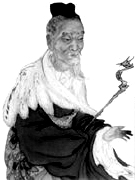
Tina: I'll never be good if you hang out with people like us.
Rob: Do you have any other clubs you'd recommend?
Tina: Try the Kung Fu Club, or the chess club, or the pingpong club.
Rob: Not bad ideas. Maybe I'll join a hiking club, too.
讲解:
1. 对话中Tina和Rob还在谈论有关宗教的事情。Tina问Rob吃素是因为佛教还是什么别的原因呢。...or something 表示“…什么之类的”,相当口语化,就像在中文里也会有“…什么的,之类的”的说法,多用在句尾。我们来用两个对话作例子,---Would you like some juice? ---I'd rather have a beer or something with alcohol. ---你要果汁吗?---我比较想要啤酒或其他什么有酒精的东西。---The party is boring. ---Maybe they should change the music or something. ---这个派队好无聊。---也许他们应该换换音乐什么的。
2. Rob承认,有一点是因为佛教的原因。他说自己的“业”已经够重了,不需要在造业了。karma 是梵文,指因为过去的行为而造成的结果,又称为“业”。
3. “大乘”的梵文Mahayana是“大的车乘”的意思。“小乘”的梵文Hinayana是“小的,低等的车乘”之意,不过Hinayana这个词带有轻视、贬低的意味,所以建议大家避免使用,而用Theravada佛教称呼“小乘”佛教。现在还是来给大家几个关于佛教的例句。Zen and Mi both belong to Mahayana Buddhism. 禅宗和密宗都属于大乘佛教。Mahayana Buddhism spread from India into China and Japan. 大乘佛教由印度传入中国和日本。Hinayana Buddhism is m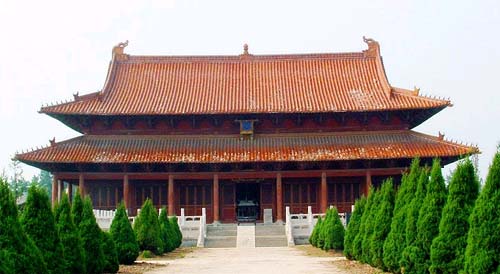 ainly practiced in Burma and Thailand. 小乘佛教主要盛行于缅甸和泰国。
ainly practiced in Burma and Thailand. 小乘佛教主要盛行于缅甸和泰国。
4. Rob还说他一直想去泰国对小乘佛教作深入了解。他说,在美国大乘佛教更受欢迎。Tina还听说藏传佛教在美国也非常流行,已经变成了一大潮流。trend 表示“潮流,时尚”。Tina又问Rob真的要加入英语社团吗?Rob当然想加入了,因为他想在这里练习自己的汉语。
5. 但是因为这是英语社团,所以Tina说跟他们这些想练习英语的人一起,Rob的中文是永远不会变好的。所以Tina劝Rob参加一些别的社团,比如武术社或者国际象棋社,或是乒乓社。Rob觉得这些点子都不错,但是也许他会考虑加入Hiking Club健行社。
 收听单词发音
收听单词发音
1
vegetarian

|
|
| n.素食者;adj.素食的 | |
参考例句: |
|
|
|
2
treasurer

|
|
| n.司库,财务主管 | |
参考例句: |
|
|
|
3
enthusiasts

|
|
| n.热心人,热衷者( enthusiast的名词复数 ) | |
参考例句: |
|
|
|
4
pious

|
|
| adj.虔诚的;道貌岸然的 | |
参考例句: |
|
|
|
5
Buddhists

|
|
| n.佛教徒( Buddhist的名词复数 ) | |
参考例句: |
|
|
|
6
Buddhism

|
|
| n.佛教(教义) | |
参考例句: |
|
|
|
7
meditation

|
|
| n.熟虑,(尤指宗教的)默想,沉思,(pl.)冥想录 | |
参考例句: |
|
|
|
8
grill

|
|
| n.烤架,铁格子,烤肉;v.烧,烤,严加盘问 | |
参考例句: |
|
|
|
9
Christian

|
|
| adj.基督教徒的;n.基督教徒 | |
参考例句: |
|
|
|
10
atheist

|
|
| n.无神论者 | |
参考例句: |
|
|
|
11
regain

|
|
| vt.重新获得,收复,恢复 | |
参考例句: |
|
|
|

















